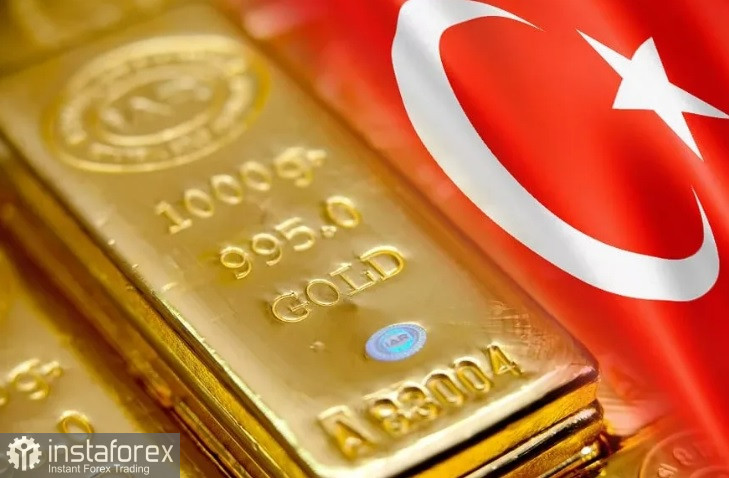
The latest data from the World Gold Council (WGC) shows that the Central Bank of Turkey sold 63 tons of gold last month. This was already a small amount compared to the sales of 100 tons in April and March. According to the official data, Turkey's gold reserves decreased by 159 tons to 428 tons during spring.
WGC's senior analyst Krishan Gopaul said such sales will undoubtedly have a significant impact on the overall activities of the Central Bank. Turkey's gold sales noticeably compensate for the slowdown in official gold purchases worldwide.
Furthermore, according to WGC calculations, central banks added an additional 228 tons to their global gold reserves in the first quarter of this year. Since data collection began in 2000, this has been a record pace for the first three months of the year.
However, compared to the fourth quarter of 2022, the quantity decreased by 45%. This decline has been observed for the second consecutive quarter.
In the previous year, central banks purchased 1,078 tons of gold. Among countries worldwide, Turkey was the largest gold buyer. According to official data, the country's gold reserves increased by 148 tons to reach 542 tons last year. This became the highest level of reserves recorded in history.
In 2022, inflation in Turkey exceeded 85%, and at that time, the country experienced growing domestic demand as citizens used the precious metal as a hedge against inflation and local currency devaluation. The Central Bank of Turkey sold gold in the domestic market to meet the demand.
However, in February, Turkey had to take actions to curb the growing gold imports in order to improve the situation with the current account deficit, as the demand for gold led to a surge in yellow metal imports.
Nevertheless, Turkey's decision to sell gold from its reserves is not a losing scenario for the Central Bank since compared to last year, gold has appreciated by 10% in dollar terms. The increase is even more dramatic in Turkish lira, ranging from 70% to 85%. If Turkey were to sell gold at the international level, it would further weaken the lira. However, when gold is sold in the domestic market for lira, it reduces the amount of money equivalent in lira, thereby contributing to the strengthening of the national currency.
 English
English 
 Русский
Русский Bahasa Indonesia
Bahasa Indonesia Bahasa Malay
Bahasa Malay ไทย
ไทย Español
Español Deutsch
Deutsch Български
Български Français
Français Tiếng Việt
Tiếng Việt 中文
中文 বাংলা
বাংলা हिन्दी
हिन्दी Čeština
Čeština Українська
Українська Română
Română

